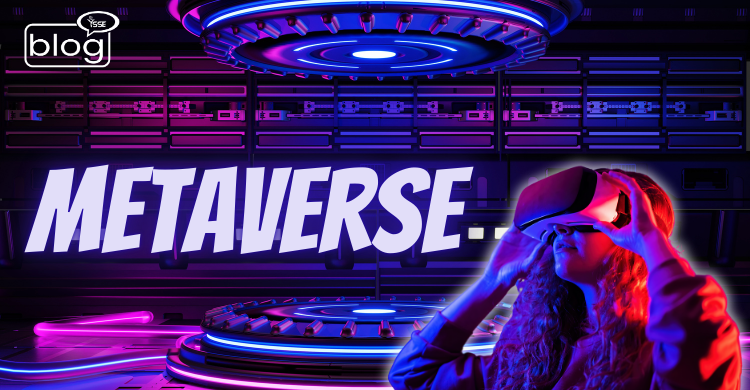In recent years, digital technologies have been exponentially evolving, giving rise to the metaverse as one of the most popular innovations. Science fiction used to confine the metaverse concept, yet this digital environment now progresses toward becoming a reality that promises to transform digital interactive experiences and professional environments and social activities of the future world. The metaverse is an innovation promoted as the next digital revolution, yet some see it as a simple technological advancement.
Understanding Metaverse
Traditional metaverse establishes, through virtual means, a complete interactive platform for users to experience digital environments with avatars and diverse virtual elements.
According to those who research the metaverse, this system consists of augmented reality (AR) and virtual reality (VR) and includes blockchain attributes and artificial intelligence (AI).
Users in the virtual space engage in social exchanges simultaneously with their ability to perform digital transactions, along with playing video games during work hours.
Meta (previously known as Facebook), along with Microsoft, Google, and NVIDIA, invests substantial monetary resources into metaverse development since they recognize its potential as the upcoming version of internet technology known as Web 3.0.
Why Is the Metaverse Being Called a Revolution?
-
A New Era of Social Interaction
People experience fundamental changes in their essential social interactions when they succeed inside the metaverse’s virtual three-dimensional realms. Faces represented by 3D Avatars help people connect within virtual spaces where they simulate true communication by duplicating regular human activities.
-
Impact on Businesses and the Economy
Commercial businesses, alongside the entire economic framework, need to restructure their operations because of the metaverse implementation. Several businesses from the real estate and fashion sectors, alongside educational and healthcare institutions, and entertainment organizations, conduct tests on Metaverse solutions. The digital market features two key elements: virtual storefronts and property sales with digital assets and NFTs, which enable users to establish digital ownership.
-
Revolutionizing Work and Education
Social trends have adopted combined online learning and remote work systems, yet Metaverse technology seeks to enhance learning experiences further. Microsoft collaborates with Meta as a leading organization that creates virtual workspaces by developing shared virtual environments for employee connections. Students gain better educational experiences by accessing online learning platforms with active educational environments.
-
Never Seen in Gaming and Entertainment
As is the case with many new technologies, the metaverse is the first for the gaming industry, being the earliest adopters. Virtual games like Fortnite, Roblox, and even Decentralization enable users to create themselves in the virtual world, socialize, and have a lot of fun. The entertainment industry also investigates virtual concerts, live shows, and digital art exhibitions.
-
Decentralization and Digital Ownership
Being powered by blockchain, it is reliant on cryptocurrencies to furnish the digital ownership and decentralization of the assets in the metaverse. In contrast to usual digital platforms, users inside a metaverse environment on a blockchain create the content they create, can trade, and make money with their virtual assets.
Challenges and Roadblocks
- Barriers stand in the way of Metaverse adoption, even though it presents promising potential.
- Widely accessible adoption faces significant resistance from the market price of AR/VR technology alongside available utilization barriers.
- The complete digital world creates privacy and security obstacles by making users worried about data protection and facing possible cyber threats.
- The metaverse operates under regulatory constraints because governments, along with regulatory bodies, need time to build a suitable digital economy and virtual interaction policies.
- People across society understand metaverse concepts at a minimal level, thus limiting the rate of adoption across the board.
Final Thoughts: Is It the Future?
The metaverse functions as a transformative power that will transform how people live their lives and work while it reshapes social relationships. The evolution of the metaverse into the next major digital revolution depends on technological advancement coupled with basic infrastructure development, together with mass consumer appreciation of its benefits.
Organizations in the corporate sector, together with innovation departments, invest time in exploring future digital platforms that will provide connected and immersive virtual reality experiences. Society poses uncertainty about technology’s future because it does not exhibit proper readiness to adopt its implementation.
To read more blogs like this, click here.
Writer,
Nusrat Absari
Intern at Content Writing
YSSE

